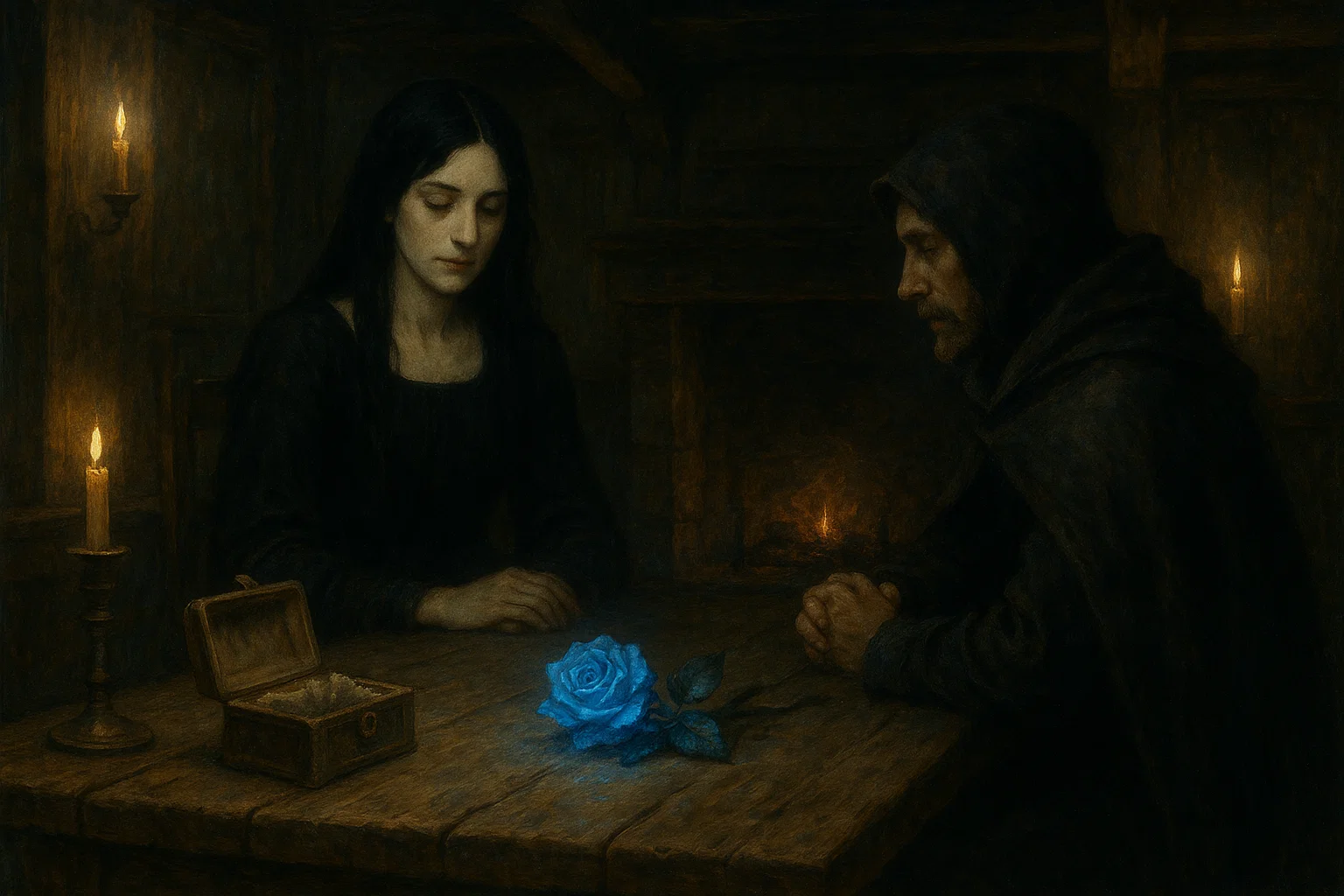Fragment attributed to A. R. Delamain, circa 1887
No one knew exactly where the woman from the inn on the hill had come from. They called her Isolde, though not by her true name, only by a melody half-remembered from another age. She always dressed in black, with ink-stained cuffs and eyes that seemed to have witnessed too many incomplete dawns. Some said that, when still young, she had once entered a forbidden garden where flowers grew that were not known to any natural land. And that, there, she picked a single Blue Rose, knowing full well that to do so would leave her forever altered. The flower never withered. She kept it wrapped in linen inside a bronze-latched box, only bringing it out on days when the weight of her body exceeded the weight of her soul. When the Rose was out of its box, no one dared speak to her, perhaps out of fear, perhaps out of reverence. There were whispers that, on such afternoons, the air around her thickened, becoming nearly liquid, as if the world had to slow down just to let her continue being.
On the night of the solstice, a traveller entered the inn and recognised the scent of the Rose before ever seeing it. It was a fragrance he had dreamt once, or perhaps carried in the folds of a letter never sent. He sat at her table without a word. She did not speak either. Instead, she opened the box – for the first time before anyone – and placed the Blue Rose on the worn wood. The flower seemed alive, but, more than that, it seemed to listen. It is said the two of them drank in silence until the fire went out and that, before he left, she offered him a single thorn from the Rose, wrapped in a ribbon of faded silk. He took it without understanding. By morning, Isolde had vanished. Some claimed to see her years later, by a river where blue flowers grew wild. Others insisted she had never existed, that she was nothing more than a hallucination born of hunger and silence. But there are still those who keep a thorn wrapped in silk beside their bed and swear that, at night, it hums. As if waiting to touch the skin of someone who once dared to hear the impossible.
And so the question remains: who was Isolde?
The one who picked the impossible flower?
Or the flower that simply learned to walk?
